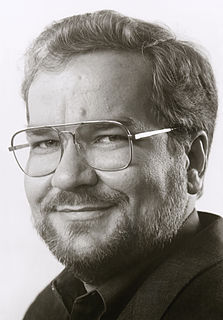A Quote by Jonathan Zittrain
Owned technologies are easy to grasp because they're so prevalent. They're technologies that are developed and shaped by a defined group, usually someone selling it.
Related Quotes
Technologies first equipped the territorial body with bridges, aqueducts, railways, highways, airports, etc. Now that the most powerful technologies are becoming tiny - microtechnologies, all technologies can invade the body. These micro-machines will feed the body. Research is being conducted in order to create additional memory for instance.
If you look at the Gulf War or new military technologies, they are moving towards cyberwars. Most video-technologies and technologies of simulation have been used for war. For example, video was created after the Second World War in order to radio-control planes and aircraft carriers. Thus video came with the war. It took twenty years before it became a means of expression for artists.


































